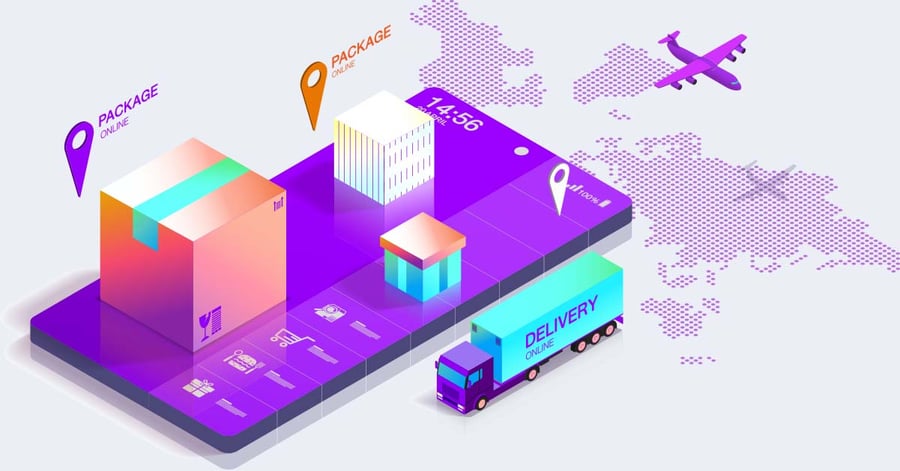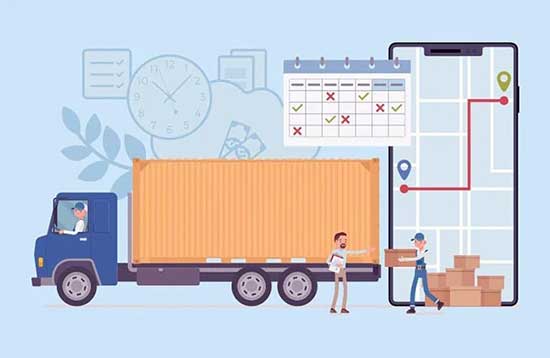

Post-pandemic, there's a significant shift in digitization trends across the logistics service provider (LSP) ecosystem. Multiple logistics organizations are looking ahead to upgrading their legacy custom-built systems or point solutions, that take care of just a part of their business.
LSPs would have deployed most of these software solutions a few years back, either due to the suggestion from the end customers to use a specific solution or a short-sighted vision to have a TMS or a WMS or a billing solution that takes care of an immediate need.
Over the years, the LSPs would have grown and acquired more customers, but their IT infrastructure would have remained the same. After the pandemic, LSPs are expected to equip themselves to provide visibility to their end customers, anticipate supply chain disruptions, predict demand, improve efficiency, and bring down the cost of operations.
In this post, let's look at 5 undeniable reasons why LSPs should move toward an integrated system.
1. Seamless flow of Data
An integrated system enables seamless data flow across multiple divisions and reduces redundant tasks. A logistics service provider can understand how the freight is handled during a Line haul transportation, where it is stored in a warehouse and when the last mile delivery will happen. This helps a Logistics organization form a comprehensive view of the freight transported. With an integrated system, this happens seamlessly without needing any middleware or complex integrations.
2. Visibility
We cannot talk about the supply chain without uttering "Visibility." One of the illustrious challenges that Supply chain practitioners face is to attain end-to-end visibility. A siloed system, for example, an independent TMS, can provide information only on various aspects of transportation but will not provide data on how its stored in warehouses or which shipping carrier will be transporting it across continents. To get that information, we need third-party integration, which sometimes breaks and is not flexible. To overcome this, LSPs need to invest manual effort in processing redundant data across multiple systems. This process beats the entire purpose of digitization.
When we compare a similar scenario with an integrated system, the data flows across multiple modules eliminating redundant manual work, and the logistician can provide complete visibility of the cargo to the end customer.
3. Data Science
One of the major benefits of using an integrated solution is the availability of a gold mine of data. Every transaction, every cargo moved, stored, and delivered, can be tracked and stored. This comprehensive data will result in exclusive insights that can help automate and optimize operations. For example, data from warehouse picking and putting away can help identify an optimal route a warehouse handler can take while picking or putting away. Additionally, data can help optimize the zones where warehouse providers can store fast-moving goods. Even more, we can provide the truck driver with the most optimized route or reduce manual data entry.
4. Security
Legacy systems are usually built on older technology/database, which gets deprecated over the years and becomes a victim of cyber-attacks. Recently, Logistics and supply chain firms have been victims of data theft and ransomware attacks. An integrated system that updates new features and patches takes care of the security.
4. Scalability
As logistics customers grow, they tend to serve customers from varied industries, but the inbuilt technology serves only a certain kind of industry. To overcome this, LSPs start using the systems that shippers extend, resulting in multiple TMS and WMS solutions under a single organization. This leads to multiple disparate systems that do not work in cohesion and result in manual overhead. An integrated system that supports multiple industries' verticals can help LSPs onboard new customers from multiple industries.
An Integrated Logistics solution like Ramco brings numerous advantages over legacy systems or multiple-point solutions. With LSPs required to digitize their operations, reduce cost and improve efficiency, the shift towards an integrated solution is essential.
Frequently Asked Questions (FAQs)
Enterprise asset management (EAM) involves the management of mission critical assets of an organization throughout each asset's lifecycle. EAM is used to plan, optimize, execute, and track the needed maintenance activities with the associated priorities, skills, materials, tools, and information. The aim is to optimize the quality and utilization of assets throughout their lifecycle, increase productive uptime and reduce operational costs.
Enterprise asset management (EAM) involves the management of the maintenance of physical assets of an organization throughout each asset's lifecycle. EAM is used to plan, optimize, execute, and track the needed maintenance activities with the associated priorities, skills, materials, tools, and information.
The software helps in effective maintenance of assets through preventive, predictive, shutdown and breakdown maintenance strategies. The system also helps enterprises mitigate equipment risks by enhanced safety standards. The streamlined operations and improved asset performance helps organizations increase their investment effectiveness.
EAM is important because it helps organizations track, assess, manage and optimize asset quality and reliability. Asset intensive Organizations have hundreds, thousands, even millions of assets which needs to be maintained to maximize / optimize life of these assets to increase the return on investment.
The key features of effective EAM are:
- Work management.
- Maintenance Strategies (Preventive/ Predictive / Breakdown / Shutdown).
- Planning and scheduling.
- Supply chain management.
- Health and safety.
- Mobility.
- Analytics.
- Improved Asset Health at reduced cost through data driven maintenance Programs
- Complete visibilityon entire maintenance data across Equipment, across Models, across Branches to aid in analysis & decision making such as to Repair or Replace the Equipment
- Insightful analysis of Inspection Data to improve customer satisfaction
- Effective maintenance management enhanced by predictive maintenance and inbuilt analytics
- Increased reliability and safety, keeps complete track of all the inspections & calibration schedules
- Mobile Application enables users to execute work while “in the field” leading to minimized non-productive time and increased productivity and reduces duplication of work and human errors in recording information.
- Quick turnaround time through Actionable Notification & Alerts for every process in real time and accessible anytime and anywhere.
- Improved Regulatory Part of asset management involves the implementation of better O&M practices, which can significantly improve compliance.
Asset Intensive companies under the following Industries :
- Ports
- Cement and Mining
- Utilities
- Fleet Maintenance
- Equipment Rental
- Other Manufacturing
- Real Estate & Infrastructure
- Power Generation
Contact us for a meeting and schedule a demo
This differs on case to case basis, based on the type of installation and unique industry specific requirements. Contact us for a meeting and schedule a demo.
This differs on case to case basis, based on the type of installation and unique industry specific requirements. Contact us for a meeting and schedule a demo.
Stay Connected, follow us on LinkedIn / Twitter to know more about EAM Software latest trends.

Ragunathan leads Go-to-Market and Branding for Ramco Systems’ Logistics product, bringing extensive experience in digital marketing and product launches. He has a proven track record of driving impactful strategies that deeply connect with target audiences. Passionate about solving complex problems, delivering scalable systems, and enabling organizational growth through innovation, he excels at collaborating with cross-functional teams. Ragunathan values continuous learning and is committed to building practical solutions that deliver real value.


